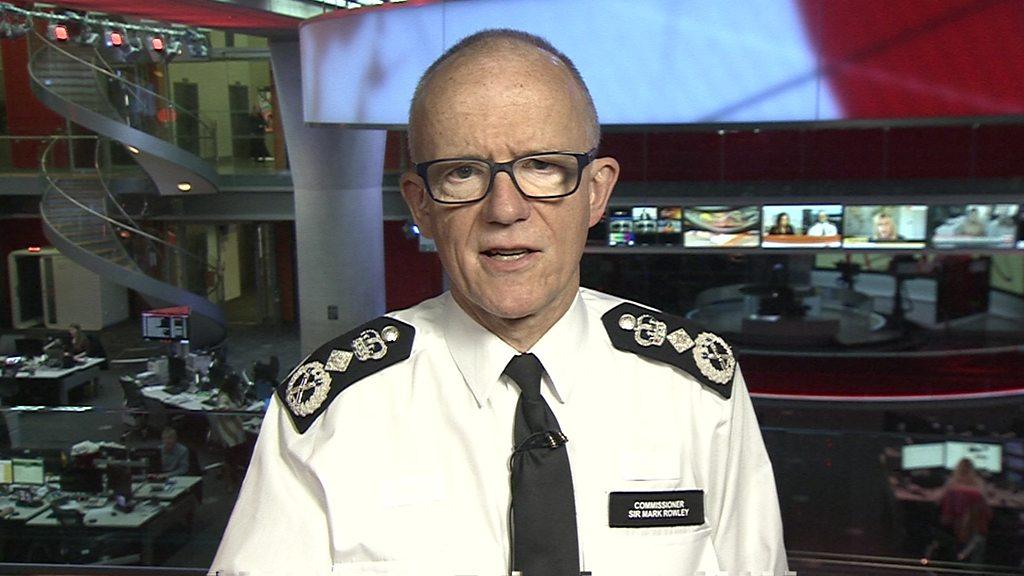Stephen Lawrence Day: 'We've never had a relationship with the Met'
- Published
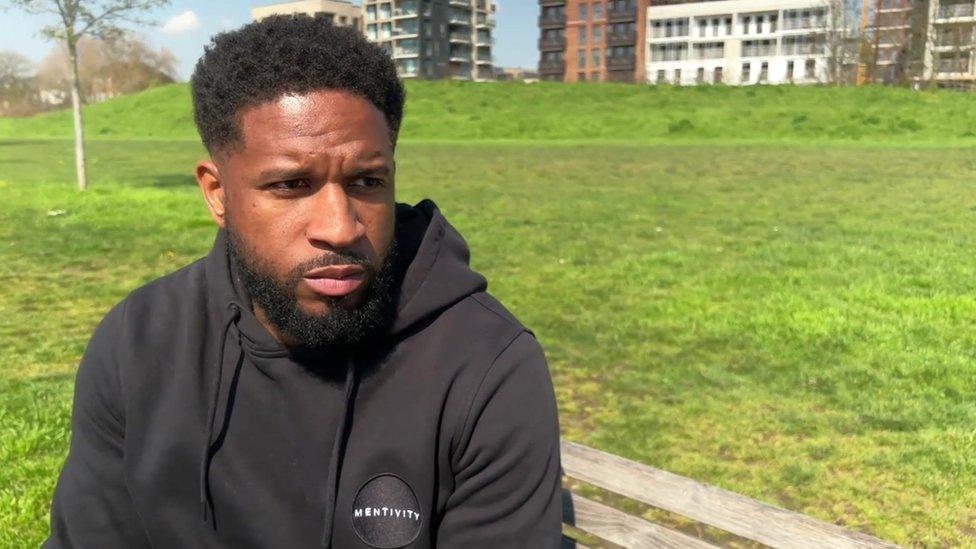
Sayce Holmes-Lewis has offered to work with police to develop training sessions including the use of stop-and-search
It has been 30 years since the racially motivated murder of teenager Stephen Lawrence in south-east London. Stephen's mother, Baroness Lawrence, believes the Metropolitan Police has failed to change in the decades since her son's death, while the force has recently been rocked by a series of high-profile scandals and damning reports. It has left some questioning how much the Met has changed since the 1990s.
Sayce Holmes-Lewis remembers hearing the news that Stephen Lawrence had been murdered back on 22 April 1993.
He was nine years old at the time and living in Eltham, the same neighbourhood where Stephen was stabbed to death in a racist attack.
"It was devastating," he recalls. "I realised as a black young boy in south-east London, this could be anyone of us."
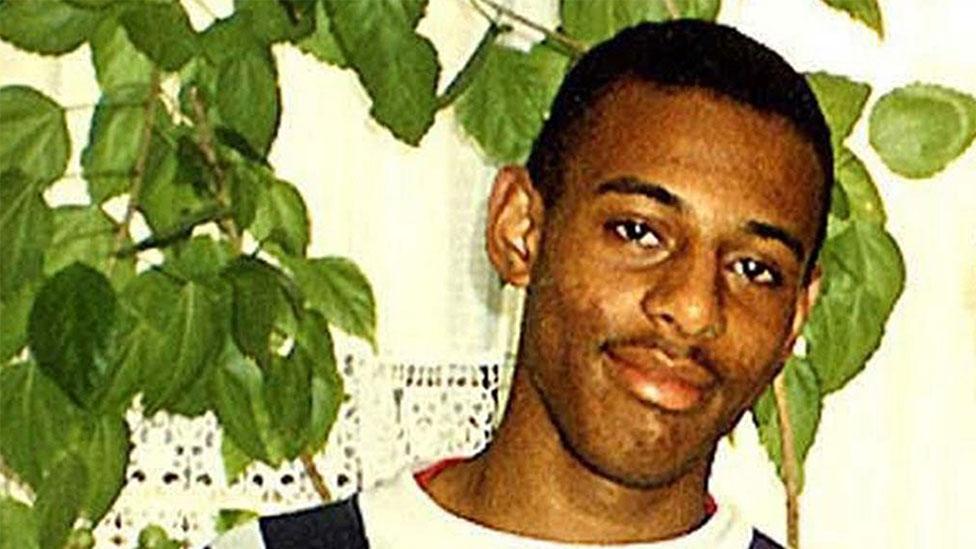
Two men were found guilty of Stephen Lawrence's murder and jailed for life in 2012
But it wasn't just the fear of racist attacks that troubled him and the local community.
Mr Holmes-Lewis says the failings in the police investigation into Stephen's murder, and the subsequent Macpherson inquiry, came as no surprise.
"When these headlines came out, it wasn't news to us. We knew that the police were institutionally racist," he explains.
Thirty years on from Stephen's murder, he also believes nothing has really changed.
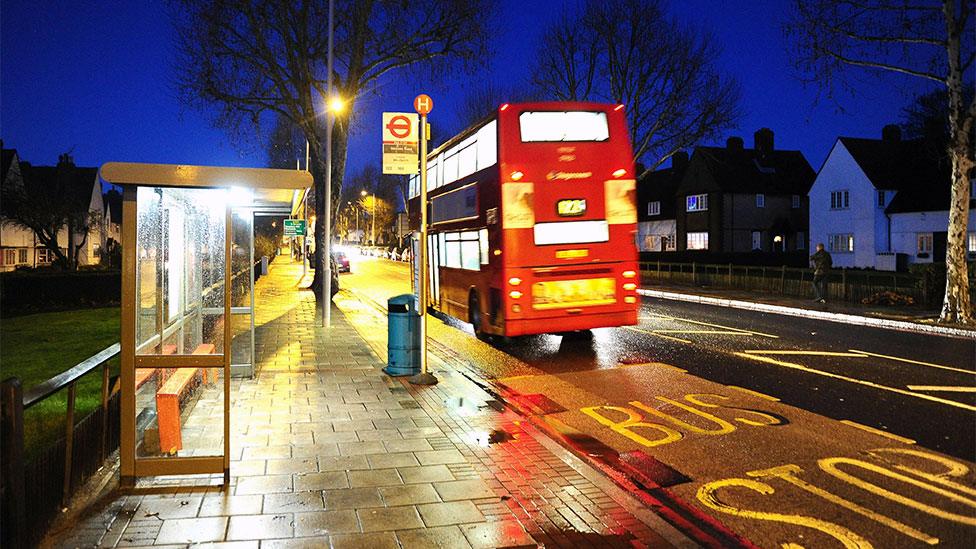
The bus stop in Eltham where Stephen Lawrence was attacked
Mr Holmes-Lewis, who is the founder of Mentivity, a mentoring group for young people, believes stop-and-search is having a particularly damaging impact on young people.
"Officers are not undergoing safeguarding training," he says. "Understanding county lines, understanding criminal exploitation."
Those views are supported by the findings of the recent Casey Review, which found the Metropolitan Police is still institutionally racist, as well as institutionally misogynistic and homophobic.
The blistering review also said black communities are over-policed and under-protected.
Watch: Baroness Casey on her blistering report of the Met police
Baroness Casey recommended "a fundamental reset" on stop-and-search, which is used disproportionately on black communities.
Commissioner Sir Mark Rowley - who promised to increase trust in the force when he took up his post last September - has vowed to root out racist officers. He also wants to look again at how stop-and-search is used.
At a meeting with community leaders in Brixton in February, he told them it has a cost if done badly. I therefore asked him what he would do differently.
"It's about us seeing, are there ways, when there's a surge of knife crime in an area," he answered.
"How can we work with communities to work out the right mix of tactics? Looking at a more collaborative approach rather than us imposing a tactic."
Met Commissioner Sir Mark Rowley: "We have let Londoners down... the findings are brutal"
That approach has been welcomed in Croydon, where local police regularly meet with the community.
Conversations, however, can be challenging.
At one meeting, just days after the publication of the Casey Review, the issue of institutional racism was raised repeatedly, along with concerns that the commissioner had refused to accept the label.
For some, this meant the Met's leadership was still in denial about its failings.
Croydon local activist Anthony King says for such schemes to work, there has to be "humility" from the Met.
"It starts from them understanding and appreciating that they have got things wrong," he says.
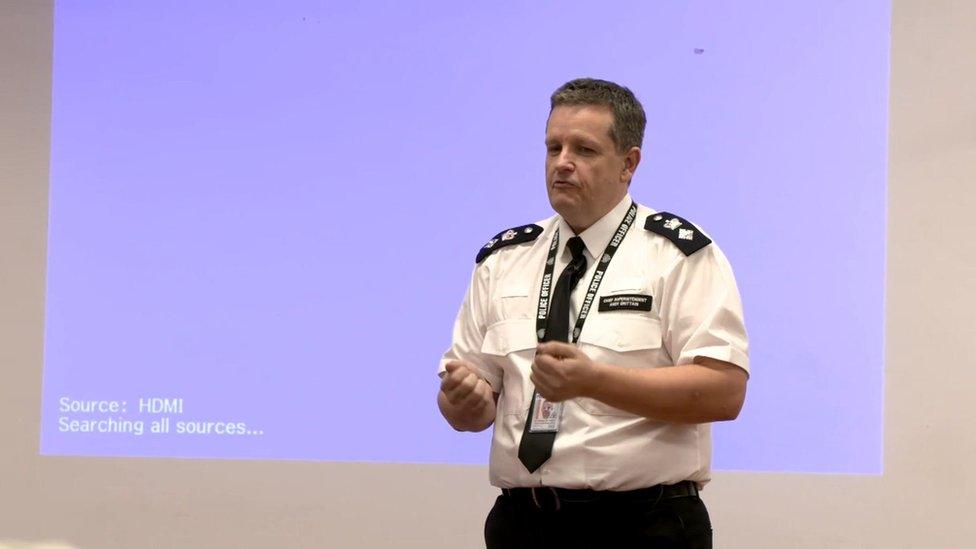
Ch Supt Brittain is concerned the Casey Report will tarnish existing efforts to improve relationships
Ch Supt Andy Brittain believes it is about "getting people from the community to come in, and then training our officers about what it is to grow up in Croydon, because very few of my officers grew up in Croydon".
Croydon Labour councillor Tamar Barrett, who runs a domestic violence support group, told me about a conversation she had with one white officer who admitted he had not previously known any black people before coming to the area.
"He said the only thing he knew about black people was what he'd seen in the media, and so he came into the force to handle us - because he thought that was his role," says Ms Barrett.
However, following engagement with the community, she believes his views are now completely different, and she too feels she has more trust in the police.
"Fact is the Met Police are institutionally racist," meeting hears, as force opens dialogue with Croydon community leaders
But the Casey Review found that, too often, community engagement has been one-way and a "tick-box exercise".
Mr Holmes-Lewis says that was how he felt after offering to work with police to develop training sessions by talking about his negative experiences of being stopped and searched.
He feels the officers themselves seemed enthusiastic, but that it wasn't taken seriously by the Met overall.
Mr Holmes-Lewis adds: "It's taken me two-and-a-half years to run 24 sessions, it was supposed to take six months, and that showcases it's not a priority.
"I think you need to have ring-fenced community teams and not career officers that just want to do it to move on."
Another challenge is over the recruitment and retention of more ethnic minority police officers and staff.
Currently more than 80% of Met officers are white.
The Casey Review warned that at current recruitment rates, it would take almost 40 years to reach a level where black, Asian and ethnic minority officers are representative of London's population today.
Mr Holmes-Lewis believes that won't happen unless those communities see genuine change first.
"You can't recruit people from the same group you are oppressing on a day-to-day basis," he says.
"They keep talking about rebuilding the relationship. It's never been there.
"Since the Windrush generation, the way my grandparents were policed, their children were policed, their grandchildren were policed, it's been the same."

Follow BBC London on Facebook, external, Twitter , externaland Instagram, external. Send your story ideas to hellobbclondon@bbc.co.uk, external
- Published19 April 2023
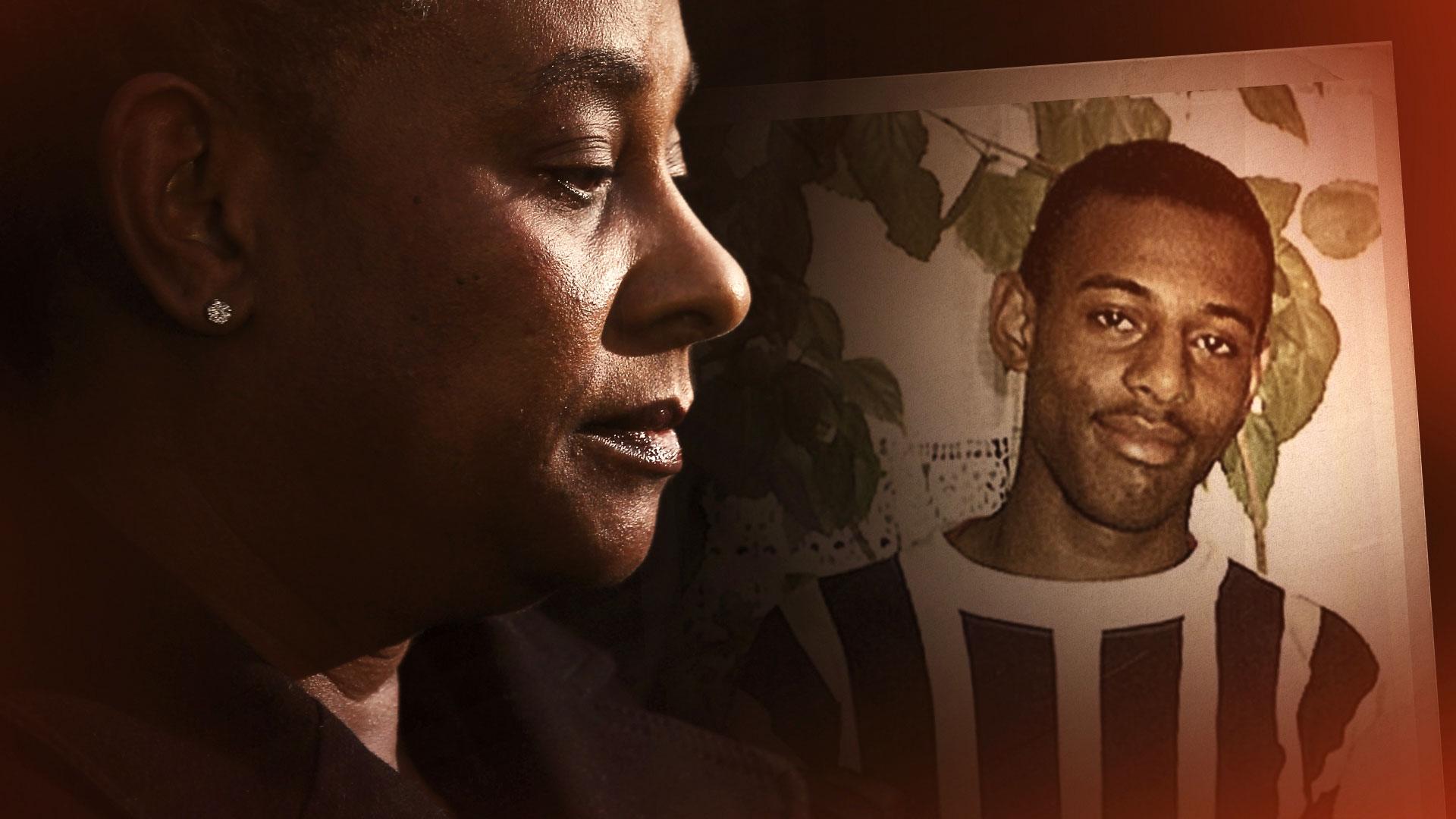
- Published6 April 2023
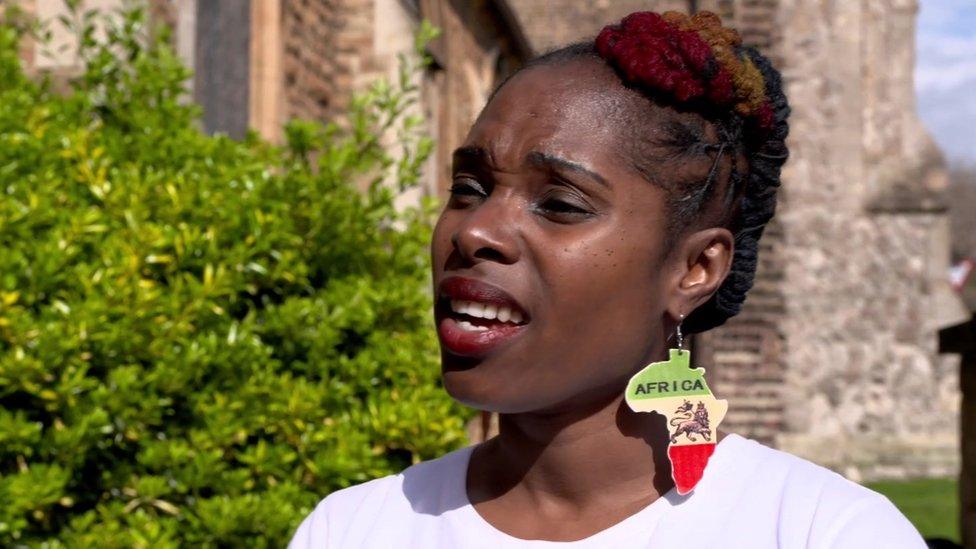
- Published6 April 2023
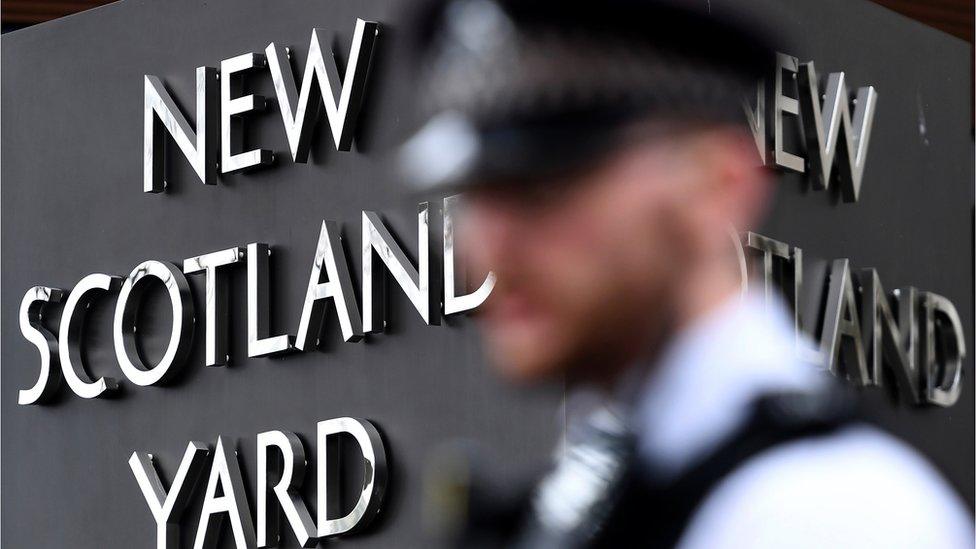
- Published21 March 2023
